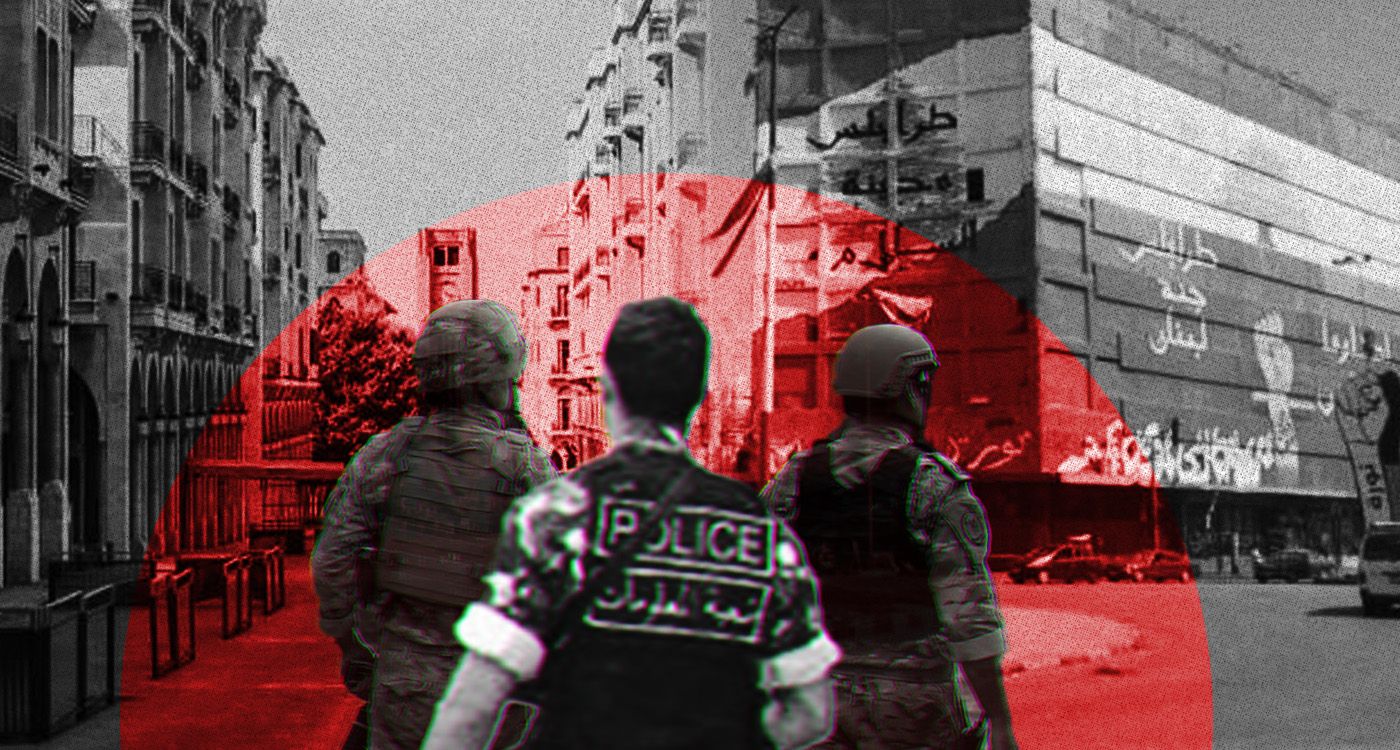
As Lebanon enters a new chapter in its history, security remains a key concern. In both Beirut and Tripoli, efforts are underway to restore stability amid contrasting local dynamics, complex demographic realities, and the lasting effects of the economic crisis.
In 2025, Lebanon’s population is estimated at approximately 5.8 million. Beirut, the capital, accounts for nearly 2.4 million residents, while Tripoli, the country’s second-largest city, houses approximately 850,000. These figures underscore the country’s heavy urban concentration—particularly in areas where security tensions are most acute.
International crime indices indicate that Beirut registers a moderate crime level (46.75), while Tripoli reports a significantly higher index (55.19), highlighting escalating safety concerns.
Recent crime statistics underscore the evolving tension. According to Mohammad Chamseddine, an analyst at Information International, crime trends from 2024 to early 2025 show contrasting developments across Lebanon:
In 2024, Lebanon recorded 585 car thefts, 153 homicides, 2,782 incidents of theft, and 40 kidnappings for ransom. During the first quarter of 2025, the data reveals mixed dynamics: car thefts dropped to 87 (down from 179 in the same period of 2024), while homicides rose to 57 (up from 50). Thefts slightly increased to 948 (from 889), and kidnappings climbed to 10 (from 8). These figures reflect a broader atmosphere of instability, with fluctuating crime rates across different categories.
In the streets of Beirut and Tripoli, security incidents are becoming more frequent—snatch thefts, carjackings, burglaries, and more.
According to Badih Karhani, a security expert and advisor at the Center for Terrorism Research in Paris, “Lebanon’s security structure is in dire need of reform. Various security agencies often perform roles outside their mandate.” He attributes this confusion of responsibilities to a lack of financial and logistical support, a problem exacerbated by the 2020 economic crisis.
Tripoli: A City Armed, A City Forgotten
In Tripoli, two major issues dominate the public's concerns. The first is the widespread presence of small arms, which fuel ongoing conflicts. The second is overcrowding, driven by an influx of people from surrounding villages and Syrian refugees, which has placed immense strain on urban services and security forces. Karhani notes that of Tripoli’s nearly one million residents, more than half hail from outside the city. “Most of the crimes are committed by individuals who aren’t native to the city,” he points out. Despite this, a pervasive sense of insecurity remains, with streets often deserted—even during Ramadan.”
The expert also underscores the city’s vicious cycle: “When it comes to disarming civilians, many respond by saying, ‘Why should we surrender our weapons when Hezbollah, the heavily armed militia, hasn’t done so yet?’”
The Lebanese government has embarked on a new strategy aimed at disarming all militias and rebuilding the state. Since the election of President Joseph Aoun and the formation of a new government, Tripoli has received more attention, with improved coordination between various security agencies. “But more action is needed—stricter penalties and a reduction in internal corruption are crucial,” Karhani stresses.
A reliable security source also highlights structural challenges: “We are doing the best we can with limited resources. Our logistical capabilities are stretched, and financial support is nearly nonexistent,” they lament, pointing out that the ongoing economic crisis continues to severely impede their ability to effectively operate.
The source notes that certain areas are particularly affected: “The southern suburbs of Beirut, especially Haret Hreik, Ashrafieh, and parts of the Metn district. These areas are often targeted due to their urban layout, which allows for quick escapes—especially by motorcycle.”
Beirut: Subtle Tensions Mounting
While Beirut faces a different set of challenges, they are no less pressing, according to Elie Sabbagha, Mukhtar of Ashrafieh, where a series of recent assaults, particularly targeting women, have sparked alarm. Sabbagha notes that while the security situation is relatively stable, he also acknowledges that “resources are insufficient.” “In Ashrafieh, five women were victims of thefts in just one week,” he points out. He further highlights another incident where a delivery rider had his motorcycle stolen in the early evening. The capital's municipality frequently finds itself ill-equipped: “It needs guard posts, cameras, or at the very least, neighborhood watchmen as in the past. Citizens pay their taxes and expect something in return,” he adds.
Sabbagha also condemns illegal waste scavenging by groups that sift through street trash bins for recyclable materials, leaving the rest of the waste scattered. This practice not only degrades the urban environment but also heightens public unease and further burdens the already strained sanitation services, which are struggling due to the municipality’s limited resources.
Citizen Initiatives and State Expectations
Amid state shortcomings, grassroots initiatives are starting to emerge. In Ashrafieh, the Ashrafieh 2020 association launched the “Neighbourhood Watch” program to strengthen community vigilance. “It’s a promising initiative, but not yet accessible to everyone,” admits Sabbagha.
In Tripoli, the response is more direct: “The residents demand the complete disarmament of the city and are placing their trust in the authorities. They want the government to finally take responsibility after years of neglect,” summarizes Karhani.
Economic Crisis: A Catalyst for Insecurity
Both experts agree that the country’s socio-economic crisis is a major driver of insecurity. Karhani points out, “Poverty directly feeds into crime. But this should not be an excuse—there are solutions, and the state must help reposition Tripoli economically, especially through its port and the Rashid Karamé Exhibition Center.” He calls for greater collaboration between security agencies and a stronger judicial policy to dismantle networks of impunity and clientelism.
A Constrained Daily Life
The growing insecurity is forcing residents, especially women and children—who are often the most vulnerable—to adjust their lifestyles. In both Tripoli and Beirut, many residents hesitate to venture out after dark, restrict their movements voluntarily, and express growing concern for their children's safety. “In Tripoli, the city’s image is negatively amplified: a small incident is widely reported, while the same event elsewhere goes unnoticed. This is a form of stigmatization that leads to further isolation,” laments Karhani.
The commitment shown by President Joseph Aoun and the government to restore the state’s authority is seen as a positive step. “We need to eliminate the protections some criminals enjoy and rebuild trust between the population and law enforcement,” concludes Karhani.
In Beirut, elected officials are clear: “Citizens are ready to play their part, but the state must step up. It’s time for responsibilities to be taken at every level.”




Comments